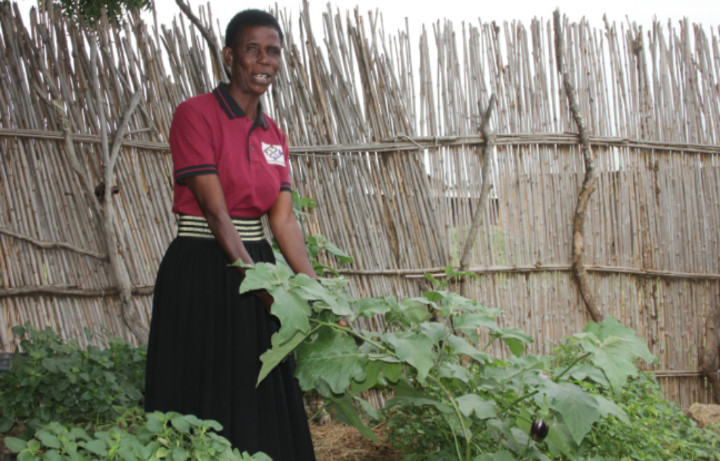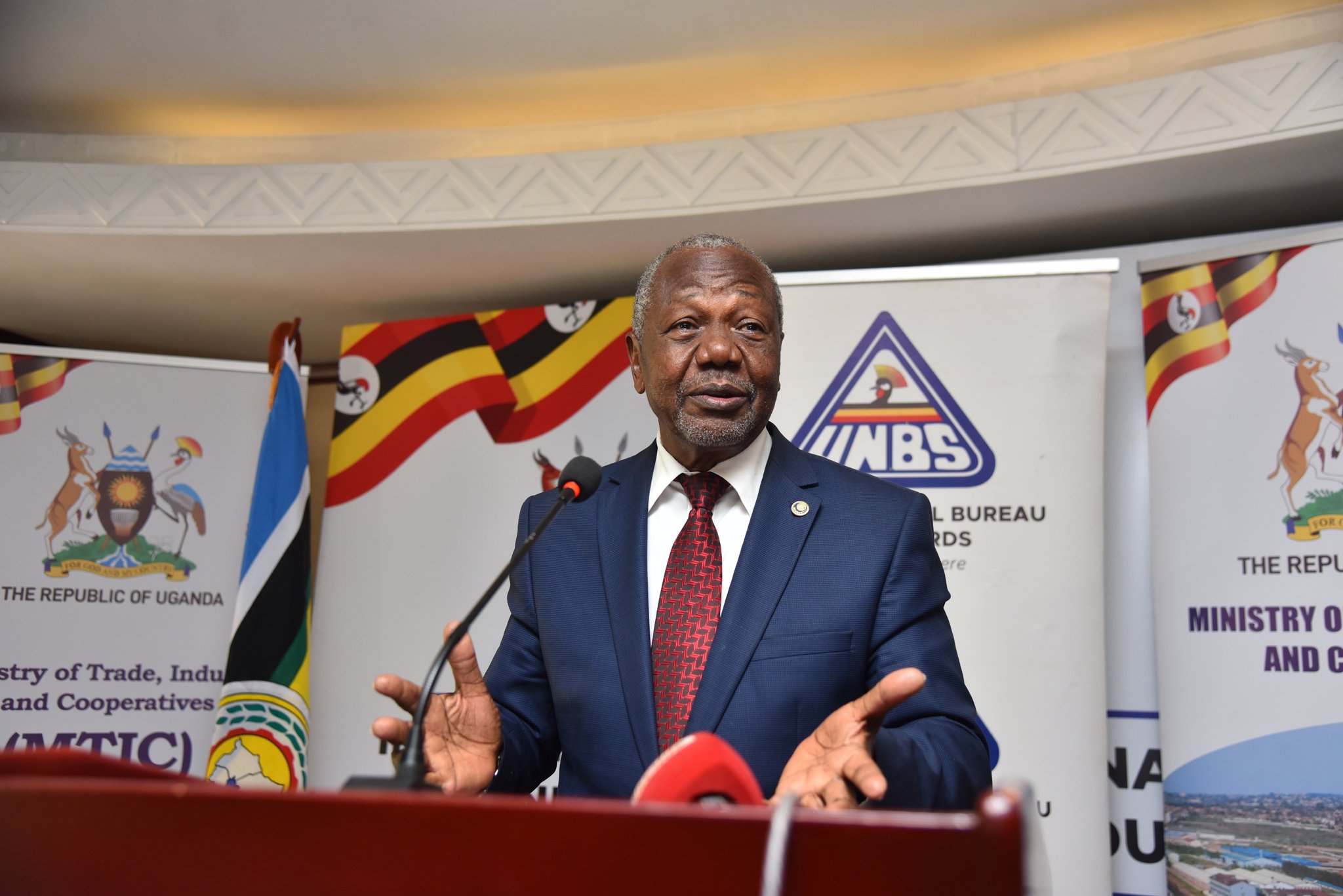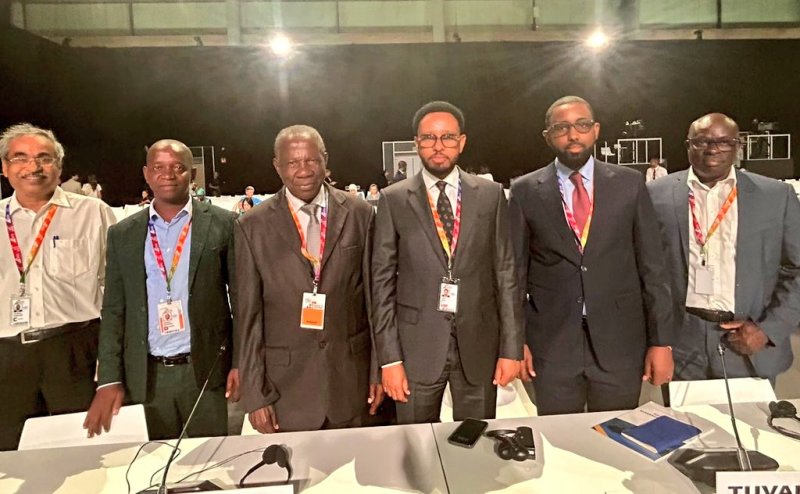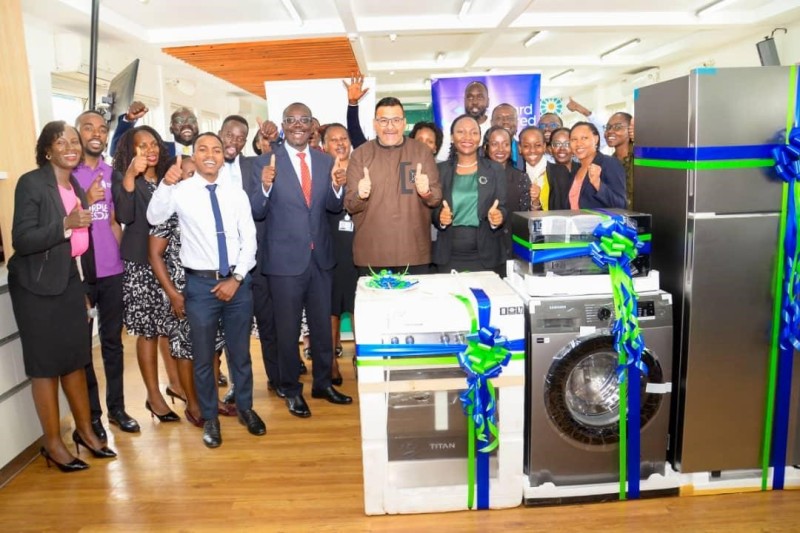Women struggling to rebuild their livelihoods devastated by oil and gas activities
Cwinyaai says her farmland, which she has for long depended on to grow cassava, maize and beans to feed her family and get some income has now been taken over by the devastating floods.

Joyce Cwinyaai, a single mother of 4 from Ngwedo Sub County in Buliisa district is one of the people that have been devastated by floods; which according to residents, are blamed on massive clearing of vegetation cover and cutting down of trees to pave way for oil and gas activities.
Cwinyaai says her farmland, which she has for long depended on to grow cassava, maize and beans to feed her family and get some income has now been taken over by the devastating floods.
Cwinyaai says loss of her land to floods has not only caused food insecurity in her home but also stripped her of livelihood for she has been growing crops to get income calling upon the government to urgently support her with alternative livelihood.
Destruction of natural resources and land for oil and gas activities for oil has greatly devastated the livelihoods of women like Cwinyaai in the oil region who are now struggling to rebuild them.
Kasasila Lamula, a resident of Kyairongo village, which is adjacent to Bugoma forest in Kikuube district, says the massive encroachment on the forest for sugarcane growing; land evictions caused by the East African Crude Oil Pipeline and sugarcane growing; and wildlife invasion have left women, who largely depend on farming, with no livelihood. She said this has resulted in high-school dropout and gender –based violence.
Constance Nyamisana, a resident of Kaiso fishing village along Lake Albert, also notes that oil and gas activities have resulted in an influx of people in the area leading to depletion and fishing restrictions from the government. She said this has greatly affected women’s livelihood- whose major source of income is fish business.
” My business was selling fish. Now I go for almost a week without even eating it. I have now resorted to kitchen garden,” said Nyamisana
When women lose their natural resources like land, they equally lose their livelihoods and to this, National Association of Professional Environmentalists (NAPE) has supported and trained women in alternative livelihoods to rebuild their livelihoods as it calls on the government for intervention.
NAPE has also mobilized and strengthened them into a grassroots women’s movement to be able to claim for their rights and jointly find a market for their products.
Beatrice Rukanyanga, the group coordinator for Kwataniza Women’s group said through women empowerment training organized by NAPE under the movement, she has been able to lobby for support to boost women’s livelihoods.
“We lobbied for support from the Ministry of Agriculture, Animal husbandry and Fisheries that gave us a maize processing and bulking facility to increase maize production, improve storage and have the capacity to bulk for some time to attract higher commodity prices,” said Rukanyanga.
Makune Beatrice, the group chairperson for Kamu Kamu Women’s Group said following empowerment from NAPE in millet value addition, the women have been able to support others to improve household income.
“NAPE supported the group with the millet grinding machine which has eased the work of value addition from using rudimentary tools like the grinding stone. We are now getting market for our packed millet at community level and supplying to supermarkets in Hoima. The grinding machine helps to grind millet for members at free of charge and also support other community members where the income goes back to the group to do other activities and support the members like giving soft loans to pay school fees,” she noted.







